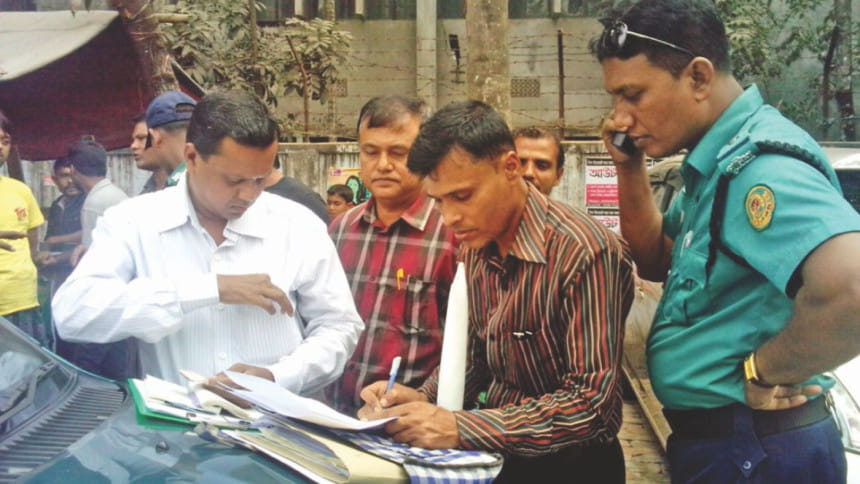Your Advocate

Query
I live in the US and am a citizen of Bangladesh. I am an avid reader of daily newspapers owing to my keen interest in the well-being of our country. Recently, I came across the issue of 'mobile courts' in several articles and news. I understand that it is probably a process for instant punishment of offences. I wish to know more about such mobile courts. Any details as to areas covered, procedure, etc will be very helpful.
Response
Thank you for following the newspaper. I am delighted to know that you are remaining updated with different issues of Bangladesh including that of legal developments. Your understanding of the concept of mobile courts is correct- that it is, primarily, a means of providing instant decisions/punishments to criminal offences to which the mobile court law becomes applicable, without the requirement of resorting to lengthy court procedures.

The procedure in relation to conferring of sanctions by a mobile court is encompassed in the Mobile Court Act-2009. The Act empowers Judicial magistrates and Metropolitan magistrates to take into cognizance and try an offence instantly. Such instant trials shall only apply to specific offences which are particularly mentioned in the Schedule to the Act, which are mostly simple offences. Section 6 of the Act further unambiguously states that punishment may only be conferred under this Act, if the accused confesses instantly, and punishment may include fine and/or imprisonment. If no confession is forthcoming from the accused, the mobile court shall have no authority to confer any punishment. The case shall then be referred to the appropriate court and shall proceed as per normal court proceedings.
Allow me to elucidate the same with an illustration. For instance, a common situation where mobile courts come into play are in regulation of the food business. A mobile team may enter a restaurant, and if a random inspection reveals existence of food that fall below the stipulated standards (e.g rotten vegetables, unhygienic environment, etc), the mobile court may impose on-spot fine upon the said restaurant within the ambit stipulated by the Bangladesh Hotel and Restaurants Ordinance-1982, and provided that the restaurant authorities admit the breach. S9 of the Act also provides for immediate realization of the fine imposed in situations where no other form of punishment, apart from the said fine, has been imposed.
Nevertheless, it is imperative to mention here that the Act does stipulate some general limitations in relation to punishment. Section 8(1) states that the mobile court can only impose imprisonment for a period not exceeding 2 years, and a period not exceeding the punishment stipulated in the Act in contravention of which the offence has been committed. The Act further leaves the avenue of appealing the decision of the mobile court by way of S13 which states that an aggrieved person may be able to file an appeal to the district magistrate against the decision.
The Act contains a list of different offences under as many as 96 separate legislations, which can be tried by the mobile court. Other important features of the 2009 Act include the rule against double prejudice encompassed in S10 whereby an individual, if tried and punished by a mobile court once, cannot be tried or punished again for the same offence.
The 2009 Act had given rise to a wide-ranging variety of opinions regarding the constitutionality of the same, and also regarding its effect on the separation of powers between the judiciary and the executive. Much has also been said about the implementation of such mobile courts in ensuring public safety during recent hartals and blockades. While the positive view recognises the mobile court system as a means of speedy resolution of some offences, on the downside it is argued that the system allows officers to act arbitrarily and that in the absence of instant advice from lawyers, accused persons often appear to be victims of the situation.
On a more personal note, it is my belief that the mobile court system is a cost-effective means of speedy solution of cases which would be unnecessarily time-consuming if dealt with as per the normal court procedure. In addition to being efficient and cost-effective, the system also encourages a better legislative process in general by reducing a significant portion of the plethora of cases that are referred to courts, and which in turn slow down the legal process as a whole.
I hope that the aforesaid will clarify your understanding of the concept and the operation of mobile courts in Bangladesh.
For detailed query contact: [email protected].

 For all latest news, follow The Daily Star's Google News channel.
For all latest news, follow The Daily Star's Google News channel. 



Comments